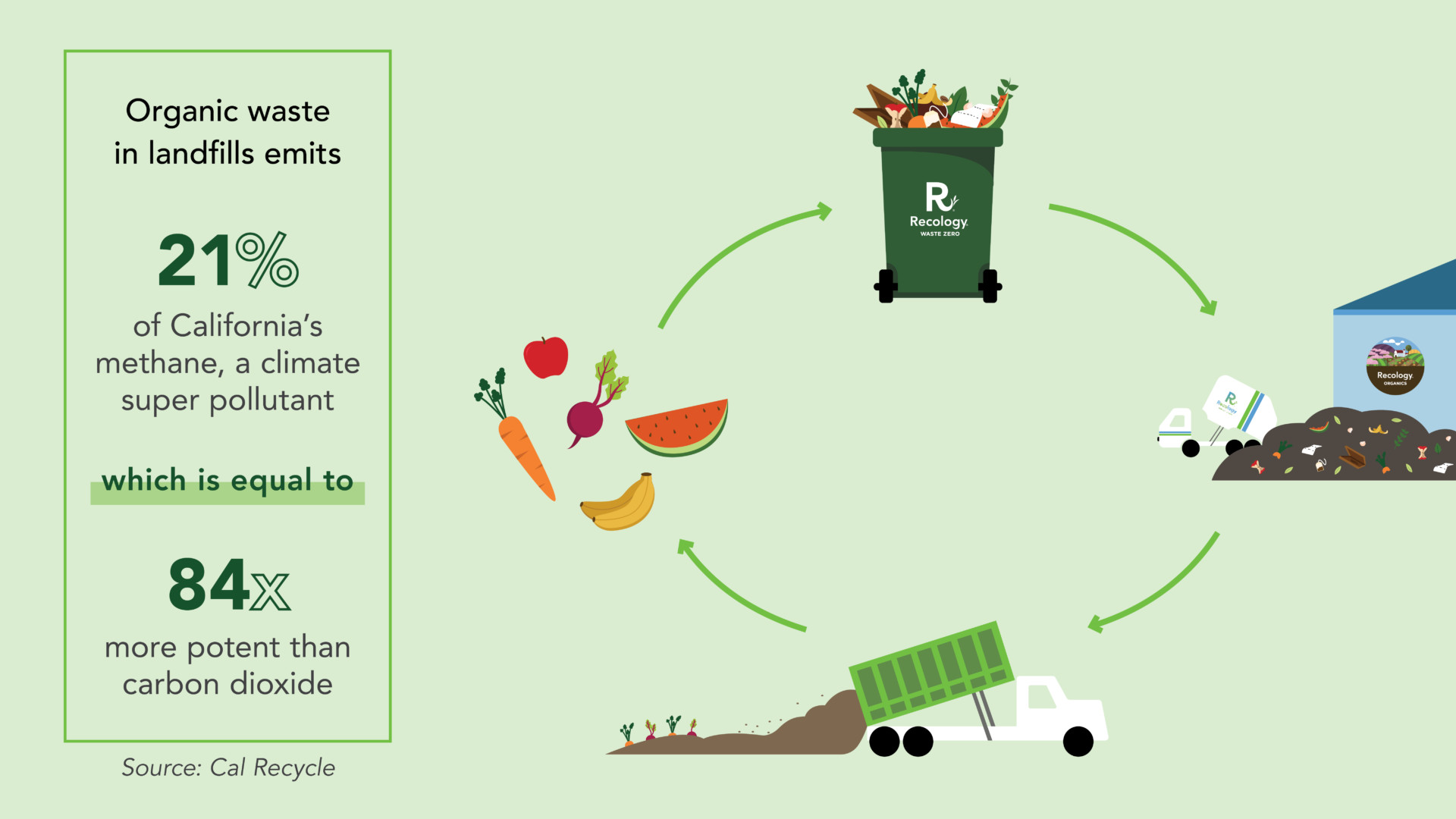
How Does Landfilling Organic and Recyclable Waste Impact the Public Health and Environment?
Landfills significantly contribute to the world’s anthropogenic greenhouse gas (GHG) emissions. An enormous amount of methane (CH4) and carbon dioxide (CO2) is generated from the degradation process of deposited waste in landfills. The by-products of solid wastes deposited in a landfill adversely affect the surrounding environment and communities near landfill sites. Communities have immediate negative impacts from pollutants that arise from landfilling organic waste, like nitrogen oxides and particulate matter that cause heart and lung disease. They also trigger or worsen chronic conditions, such as asthma, heart attacks, bronchitis, and other respiratory problem.
In January 2022, the state enacted Senate Bill 1383 (SB 1383), California’s Short-Lived Climate Pollutant Reduction Strategy. It’s designed to reduce global warming gases like methane and is a fast track to fighting climate change. When you place organic materials — such as food scraps, uncoated soiled paper, and yard waste — into your green cart, they are transformed into nutrient-rich soil, which helps conserve water and improves the state’s natural soil resources.
While composting is one of the most critical steps to combat climate change, reducing the consumption of disposable materials and even recyclable materials is just as important. It’s as simple as opting for sustainable options, such as reusable items like stainless-steel water bottles, bamboo or stainless-steel straws and utensils, shopping bags, etc. Recycle is always at the bottom or last of any waste hierarchy – Reduce > Reuse > Recycle –and focus should be placed on reduction since that has the most significant impact on helping the environment through preserving raw materials used to create new products and reducing the amount of waste sent to landfills.
Diverting as much recoverable material as possible from our first point source of waste disposal is where we have the greatest opportunity to make the changes needed by properly sorting our waste into the correct waste stream at that moment. Recoverable materials are organic and recyclable materials diverted from landfill and transformed into reusable resources.
Learn more at Recology.com/SB1383
Questions? Contact Us